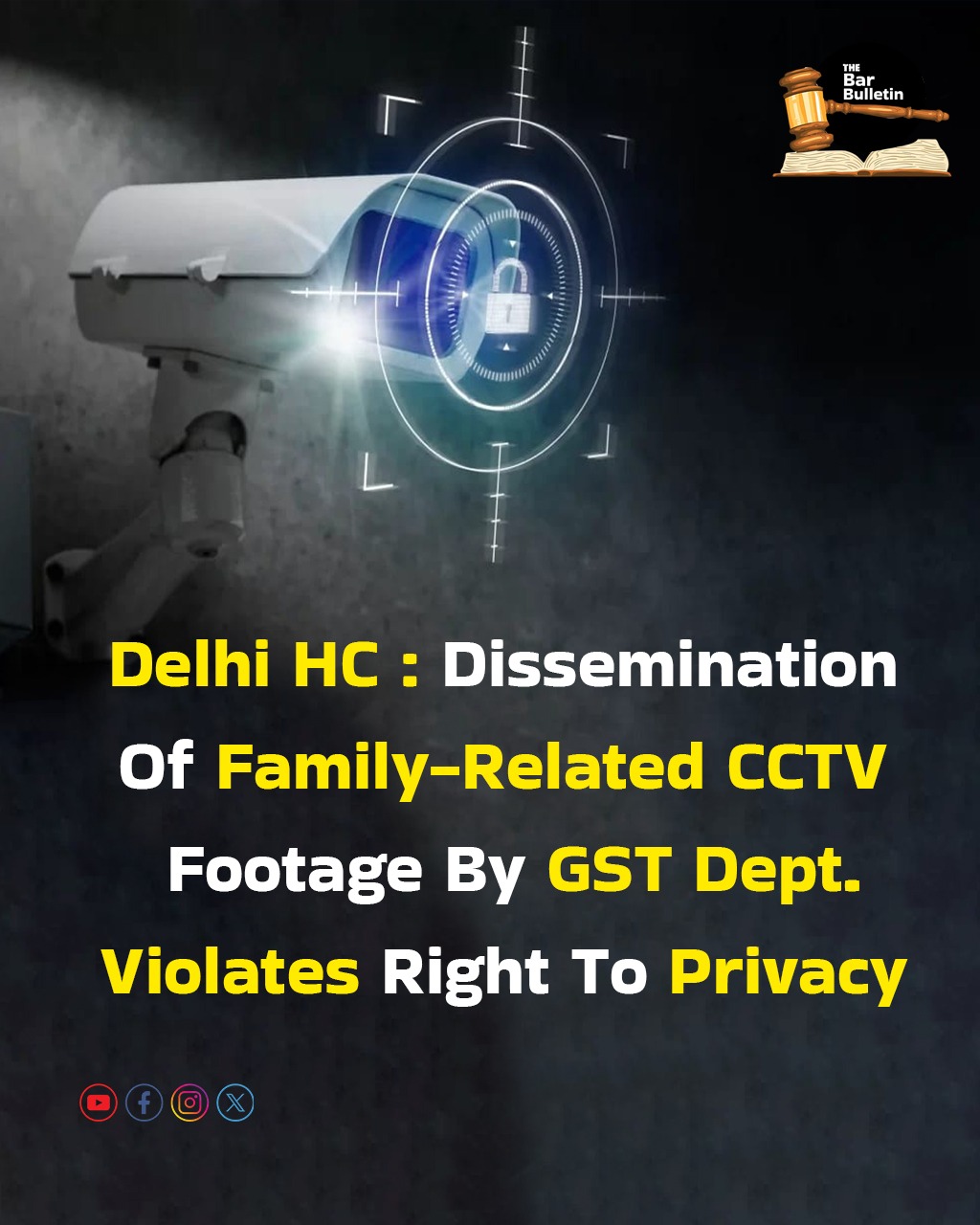The Delhi High Court recently ruled that the dissemination or use of any family-related CCTV footage by the GST department violates the privacy of family members. Accordingly, the Court issued specific directions that CCTV footage from residential premises of the taxpayer could not be accessed by the Revenue Department except in the presence of at least one family member and an authorized representative, and only relevant data would be copied, while the remaining footage would be returned.
The Division Bench comprising Justice Pratibha M. Singh and Justice Shail Jain observed that, prima facie, given the maze of entities created by the Gumber family as revealed in the investigation chart, the proceedings under Section 67 of the CGST Act were not violative or contrary to law. To unearth alleged evasion, a surprise inspection, search, and seizure were rightly resorted to by the GST Department. However, the Bench emphasized that the GST officials must ensure that the person being investigated gives access to premises to be searched, and taking access through tenants may not be permissible without knowledge of the person/entity being searched.
The Bench noted that the GST Department categorically asserted that two memory cards containing CCTV footage from the residence had not been accessed, addressing privacy concerns raised by the petitioners. Further, with regard to access to business premises, the Bench found that officials were given proper access by the tenant, who had keys, and it appeared the Gumber family was aware of the search. The Bench was therefore not convinced that access was unlawfully obtained.
The Bench emphasized that a precondition for inspection, search, or seizure is that a senior officer not below the rank of Joint Commissioner must have ‘reasons to believe’ that circumstances necessitating such action exist. These reasons must also establish that seized items are useful or relevant for proceedings under the CGST Act. Additionally, the Bench noted that the petitioners had fairly admitted that the search was not unauthorized, recognizing that Section 67 of the CGST Act provides power for inspection, search, and seizure when proper officers have reasons to believe tax evasion has occurred.
On allegations of coercion and duress regarding payments, the Bench observed that the same would need deeper examination in appropriate proceedings, noting that different versions existed. However, payments made and refund applications withdrawn would be subject to the outcome of Show Cause Notice proceedings.
Briefly, in this case, the GST officials conducted searches on multiple entities belonging to the Gumber family, including the family’s residential premises and business premises, which culminated in the seizure of electronic gadgets, documents, and CCTV footage. The investigation revealed a multi-layered structure of fictitious suppliers across four levels designed to pass fraudulent Input Tax Credit (ITC). The GST Department alleged that the Gumber family had created a maze of non-operational entities to avail fraudulent ITC worth over ₹4 crores and had filed refund applications worth ₹5 crores. Following the search, the family members made payments under alleged coercion and withdrew pending refund applications.
Appearances:
Advocates Bharat Bhushan, Nidhi Gupta, and Anunay Mishra, for the Petitioner/ Taxpayer
Advocates Arun Khatri, Akash Panwar, Anoushka Bhalla, Tracy Sebastian, Sahil Khurana, Akshay, Hitesh Nandal, Pranav, and Shelley, for the Respondent/ Revenue

